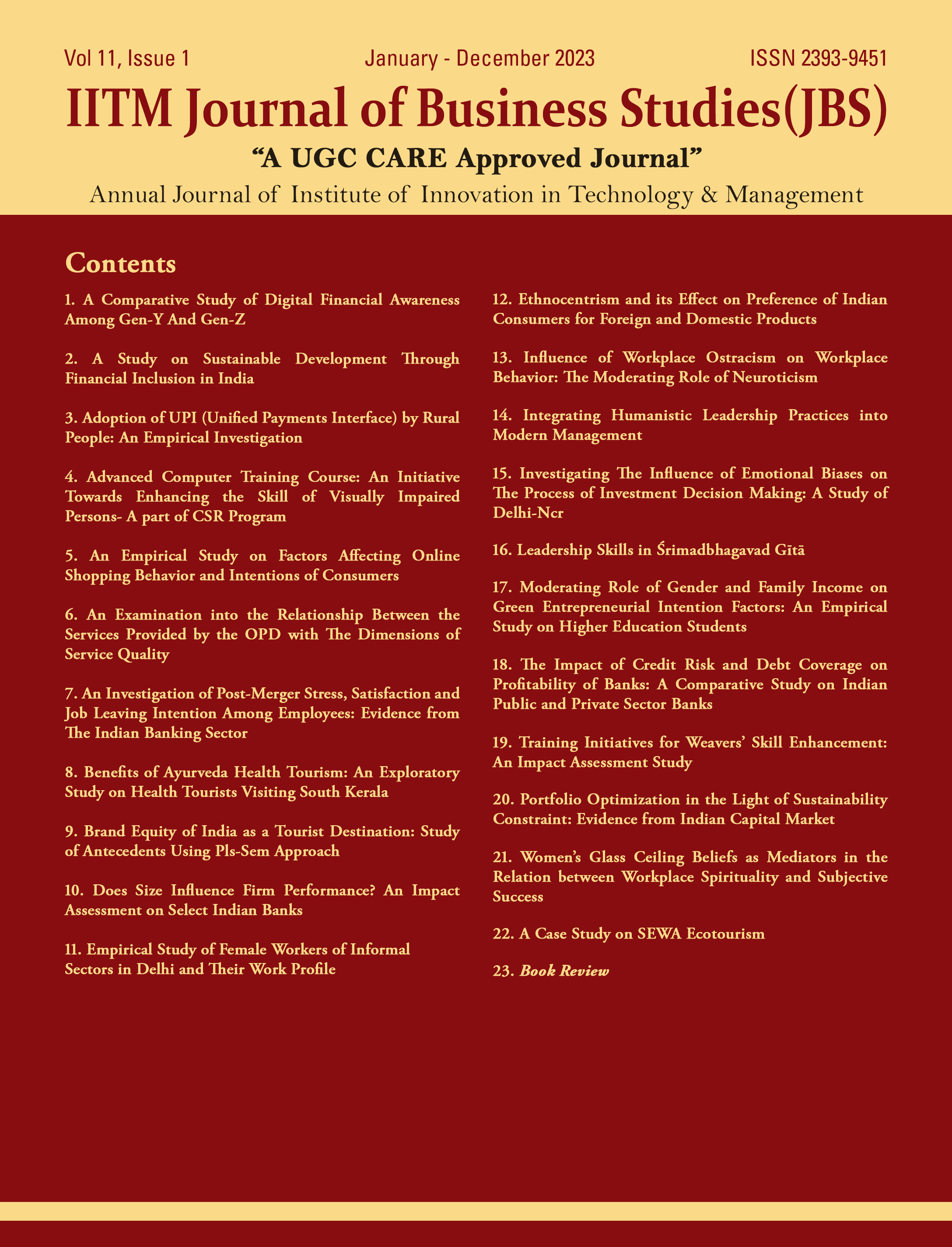Service Recovery Evaluations in Online Travel Platforms: Evidence from Indian Hospitality Industry
Keywords:
online service failure, online service recovery, justice perceptions, distributive justice, online hospitalityAbstract
Although considerable research attention has been given to the domain of online service failure and recovery in the recent years, extant literature has been inconclusive on the relative impact of each dimension of justice on post recovery customer outcomes following a successful service recovery. Hence this study examines the impact of online service recovery on post recovery customer outcomes as a result of varying justice dimensions such as distributional, procedural and interactional. A scenario-based role-playing survey was done among 325 Indian online hospitality customers in and results from a structural equation modelling revealed that distributive justice had the highest impact among the three dimensions of justice. The study provides significant contribution to both theory and practice which helps the managers to design robust strategies for addressing service failures in a hospitality context.
References
Adams, J. S. (1965). Inequity in social exchange. In Advances in experimental social psychology (Vol. 2, pp. 267-299). Academic Press.
Blodgett, J. G., Hill, D. J., & Tax, S. S. (1997). The effects of distributive, procedural, and interactional justice on post complaint behavior. Journal of Retailing, 73(2), 185-210.
Ding, M. C., & Lii, Y. S. (2016). Handling online service recovery: Effects of perceived justice on online games. Telematics and Informatics, 33(4), 881-895.
Hess, R.L., Ganesan, S. and Klein, N.M. (2006), Interactional service failures in a pseudo relationship: the role of organizational attributions, Journal of Retailing, 83(1), 79-95.
Homburg, C., & Fürst, A. (2005). How organizational complaint handling drives customer loyalty: an analysis of the mechanistic and the organic approach. Journal of Marketing, 69(3), 95-114. 6. Jung, N. Y., & Seock, Y. K. (2017). Effect of service recovery on customers’ perceived justice, satisfaction, and word-of-mouth intentions on online shopping websites. Journal of Retailing and Consumer Services, 37, 23-30.
Kim, E., & Tang, R. (2016). Rectifying failure of service: How customer perceptions of justice affect their emotional response and social media testimonial. Journal of Hospitality Marketing & Management, 25(8), 897-924.
Kuo, Y. F., & Wu, C. M. (2012). Satisfaction and post-purchase intentions with service recovery of online shopping websites: Perspectives on perceived justice and emotions. International Journal of Information Management, 32(2), 127-138.
Manu C & Sreejesh S (2020) Addressing service failure and initiating service recovery in online platforms: literature review and research agenda, Journal of Strategic Marketing, 1-32.
Maxham, J. G. (2001). Service recovery’s influence on consumer satisfaction, positive word-of-mouth, and purchase intentions. Journal of Business Research, 54(1), 11–24.
Smith, A. K., Bolton, R. N., & Wagner, J. (1999). A model of customer satisfaction with service encounters involving failure and recovery. Journal of Marketing Research, 36(3), 356-372. 12. Zhao, X., Liu, Y., Bi, H., & Law, R. (2014). Influence of coupons on online travel reservation service recovery. Journal of Hospitality and Tourism Management, 21, 18-26.

